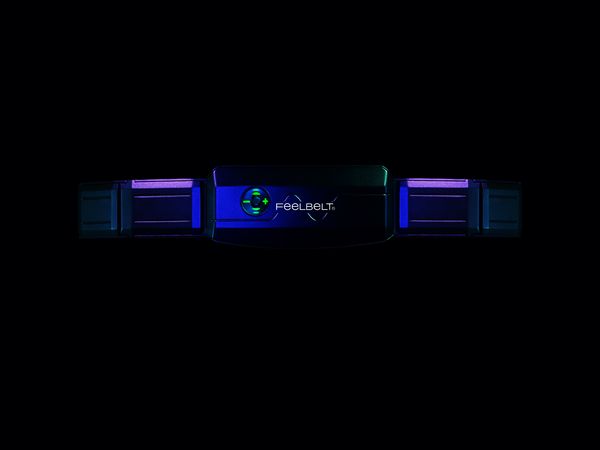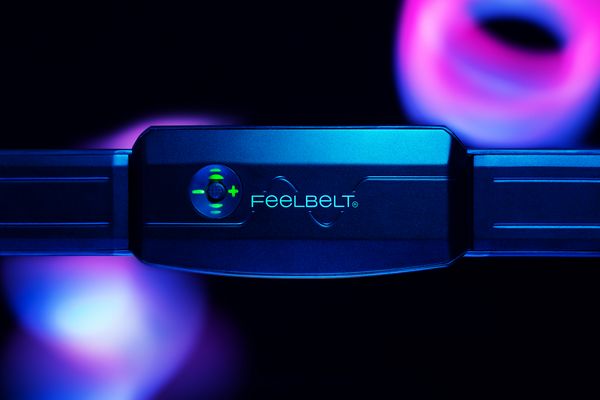In 2019 Benjamin Heese, together with some partners, founded Feelbelt. The new technology makes sound tactile and creates a brand-new experience through haptic feedback. We spoke with Benjamin about Feelbelt and what is behind the award-winning technology.
First, please tell us a bit about Feelbelt – what is it exactly?
Feelbelt is a start-up from Potsdam Babelsberg. We make sound tactile. You can experience any content, for example, a game or a video, with the Feelbelt. It takes the audio signal, converts it into haptic feedback and transfers it to your body. Ten integrated impulse generators work synchronously with what you hear and reproduce the sounds as if in stereo - spatially. And that's what's remarkable: The Feelbelt not only says: haptic feedback yes or no but also differentiates between direction and intensity.
How does it work in terms of technology?
The technology, i.e. our software, is the real innovation - the heart of Feelbelt. It picks up on the audio signal and analyses the respective soundtrack. For this reason, it is entirely irrelevant which sound source it is: It can be a smartphone, a console, a TV - it doesn't matter. The software converts the sound and plays it back in stereo. So you can perceive it spatially from different directions. Another unique feature is that thunderous sounds are reproduced with corresponding intensity. So you can feel an explosion in a film very strongly. You can control how intense your experience should be via the app by adjusting the haptic feedbacks intensity. You can also choose between different modes, such as gaming or music.
Of course, I cannot reveal how this works in detail. We have a patent on the software.


